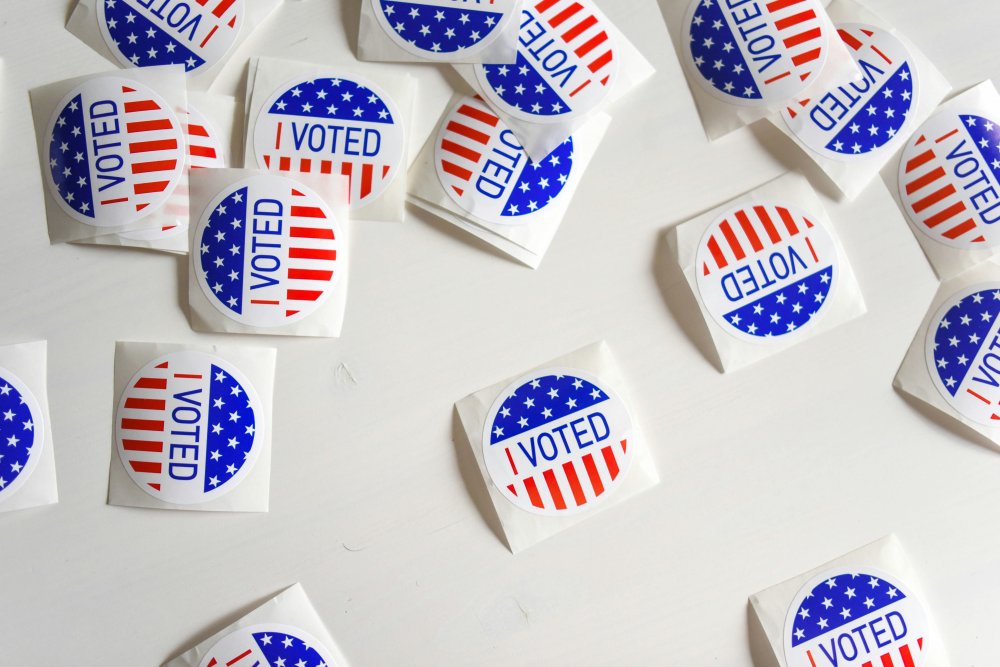Please Research and then VOTE!
March 4th, 2024
March is only the 3rd month of the year, which means we have 8 months until the next presidential election. Eight months of television ads run by Political Action Committees and the candidates themselves. Two thirds of 2024 will be taken up by campaigns that promise no end to some of the nastiest, backbiting, fought in the gutter, politics we have ever seen. There will be no civility, no decorum, and certainly no pleasantries exchanged by the candidates as they are on the trail bringing their cases to the American people. We will spend less time on the issues and more time on personal attacks and verbal jabs being exchanged. Many will go to the poles and cast a ballot for the “lesser of two evils”, while others enthusiastically vote for one candidate or the other.
It is easy to make the decision not to vote. For many, neither of the major parties nominated representatives really share their viewpoints, have walked in their shoes, or understand what they deal with in their day to day lives. For a twenty or even thirty something choosing between a billionaire septuagenarian and an octogenarian professional politician are not choices they easily connect with. More than a few are turned off by the negativity of the campaigns and opt to pass on endorsing or supporting one over the other. Often, people express the sentiment that their vote doesn’t matter. In some cases, it is hard to argue with them. If you live in a state that historically and consistently supports one party over the other, it can feel as if your vote matters little or not at all.
Perhaps in national elections that is true. Luckily many of us still believe in exercising our rights even if we are unsure of the impact it will have. Numbers for voting in presidential elections in this country tend to be pretty high. According to one source in 2020, 68% of those eligible to vote cast a ballot in the presidential election. While other sources said it was 68% of registered voters went to the polls or dropped a ballot in the mail. Regardless, that is a lot of people participating in the process. However, the 2022 Mid-year election unfortunately, saw far fewer voters participate. Town or city elections, especially if they are not held as part of a national election often see turnout in the 10 – 30% range. Here is where your vote matters.
Growing up with a politically active mother, politics was discussed often in the house, even at social gatherings. Voting, regardless of whether it was a town election, or a national presidential contest, was not to be missed. From a young age we were told it was our civic duty and never to be taken for granted. Several members of my family had fought in World War II, while others served in Vietnam; so, we were reminded of the sacrifice’s others made to keep us free and allow us to have, what we now consider, a fundamental right. As a result, I am what is called a habitual voter. It is rare that I miss an election at any level. About 15 years ago a politician told me that habitual voters are often targeted by campaigns in both fundraising and get out the vote efforts. It is said that all politics is local, and I believe that when it comes to local elections, my vote often carries more weight because fewer people vote in those elections.
It isn’t enough to vote; one must do some research on the slate of candidates running for election. Years ago, an artist that we worked with wrote an article imploring the uninformed voter to stay home. Over the years, we have heard the term low information voter often used by the conservative right to describe those that vote for left leaning or liberal candidate. Low information voters do exist but that definition to me is not accurate in the least. In my book, a low information voter simply votes a particular party without looking into a person’s ideology, platform, or in the case of an incumbent, their voting record. Yes, even in town elections, I research each candidate’s background and philosophy. It is important to know who you are casting your vote for.
Some voters support candidates who they feel align with their views on a whole spate of issues. These can be their stance on a wide range of topics like the environment, economic policy, immigration, or right to life issues. Others are single issue voters that are interested in one area that a candidate is passionate about or supportive of. Sometimes they are concerned about the economy or educational reform and for some it is a candidate that has a long history of supporting the LGBT+ community. Regardless of the path or candidate they choose, they do their research and make an informed decision.
Over time, I have learned a trick or two about voting. Massachusetts is a state or commonwealth where, in the primary, if you are registered as either a Democrat or a Republican you can only get a primary ballot from the party you are registered with. However, as an independent or unenrolled voter, you can take a ballot with the slate of candidates from either party. Despite coming from a household with a long history of registered Democrats, I have been, and continue to be, unenrolled. During the primaries I love the flexibility of taking either ballot. Sometimes, if I believe the candidate I really want to win is a lock in their party, I will pull the other party ballot to try and have a weaker candidate nominated for them to face in the general election. At times in a closely contested town race where there are multiple seats open, I will vote for less than the maximum number so that my vote carries more weight. It is called voting with a bullet. In this election cycle there are 4 people running for 2 open School Committee seats. Instead of voting for 2 people, I will only vote for the one candidate that I feel is the most qualified and whose platform most closely aligns with my views.
It is a mystery that more people neither register to vote or vote in elections. For many, that right took years to attain. When this country was founded for the most part only white men who owned property were granted the right to vote. Nationally, women weren’t allowed to vote in every state until 1920. During World War II, some states blocked Asian Americans or any Americans with Asian blood from voting. Full voting rights weren’t restored to them until 1952. People of color and Native Americans for almost 2 centuries were a target of all kinds of restrictions and barriers to vote. Often, even though they had that right they were strongly discouraged from casting their ballots.
Politics in America has certainly devolved. I long for the days when men and women from different parties, as well as conflicting ideologies, were able to sit down and reach compromises that helped their constituents and the American people. It is disheartening that instead of concentrating on issues, our campaign “news” is full of schoolyard barbs, lobbed at candidates by their opponents. It is crazy but I am still looking to find a sane, rational adult in the room. Regardless of the tactics employed, I will do my research, head to my local polling place, and cast my ballot. Hopefully, you will join me.
About the Author
Ken Abrahams is a political junkie. He loves reading about politics, politicians, and the electoral process. Years ago, he considered running for local office but the time commitment and possible impact on his family was to great. He is happy sitting on the sidelines and voting.
To find out more about the company go to our website www.funent.com you can also go to this link to sign up for our newsletter which comes out about 6 times a year https://funent.com/subscribe-to-the-funny-pages/. Our newsletter will tell you more about the company and the products and services we offer as well as some games, things to do, and the occasional cooking tip.













